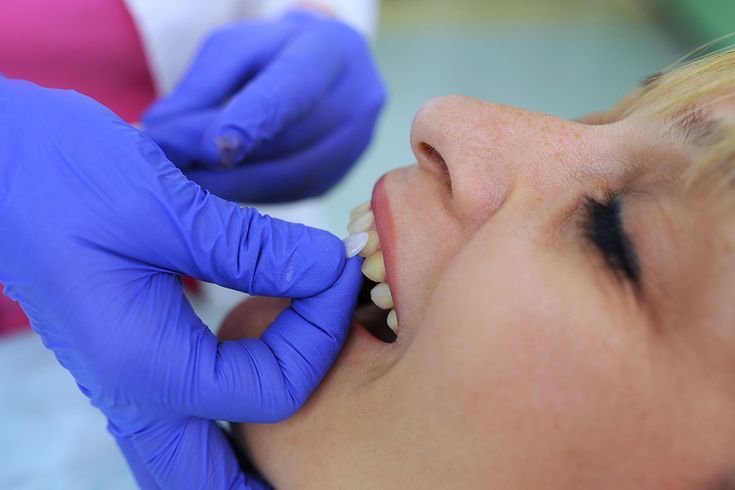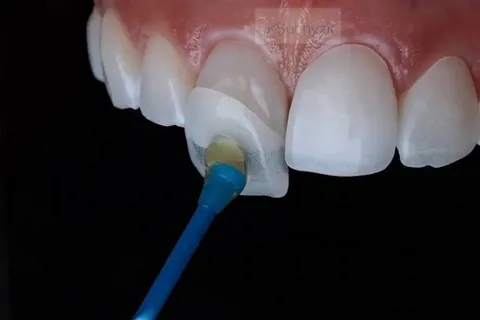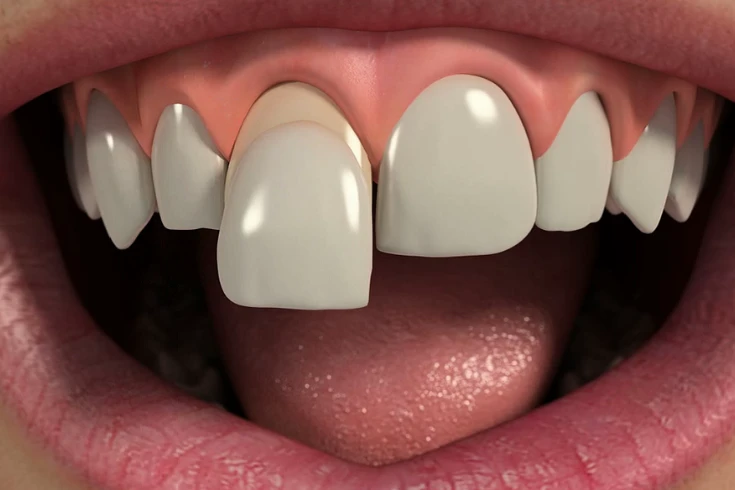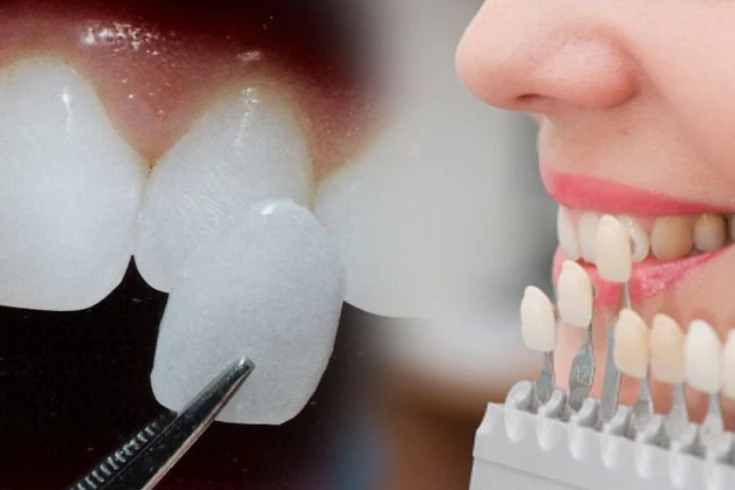When considering cosmetic dentistry options, veneers are a popular choice for individuals looking to enhance their smile. A common question that arises is whether veneers are permanent. In this comprehensive blog, we will explore the durability and lifespan of dental veneers, the factors that influence how long they last, and what you can do to make your veneers last longer. Whether you’re already considering veneers or simply curious about the procedure, this guide will provide valuable insights.
What Are Veneers?
Veneers are custom-made thin shells that are bonded to the front surface of teeth to improve their appearance. These shells are typically made of porcelain or composite resin. Veneers can address a variety of dental issues, including:
- Discoloration or staining
- Chipped or broken teeth
- Misalignment or unevenness
- Gaps between teeth
The process of getting veneers involves shaping the teeth, taking impressions, and placing the veneers in a way that looks natural and aesthetically pleasing. The question are veneers permanent comes into play when considering how long they will last and whether they need to be replaced.
Are Veneers Permanent?
The simple answer is no; veneers are not permanent. However, their longevity can be quite impressive, especially when properly cared for.
Porcelain veneers typically last between 10 to 15 years, while composite veneers may need replacement after 5 to 7 years. The key factors that affect the permanence of veneers include:
- Material used: Porcelain is durable and resistant to staining, making it more likely to last longer compared to composite veneers.
- Oral hygiene: Proper brushing, flossing, and regular dentist visits can extend the lifespan of veneers.
- Lifestyle factors: Habits such as teeth grinding, nail-biting, or chewing on hard objects can reduce the lifespan of veneers.
- Diet: A diet high in acidic foods or sugary drinks can lead to damage or discoloration of veneers over time.
Although veneers are not permanent in the strictest sense, they are designed to provide long-lasting results that can give you a beautiful, natural smile for many years.
What Affects the Durability of Veneers?
There are several factors which influence their durability. Let’s take a closer look at these key factors:
Quality of Material
As mentioned earlier, the material used for veneers plays a significant role in determining how long they will last. Porcelain veneers are generally more durable than composite veneers and are resistant to staining, chipping, and wear. They also provide a more natural look, closely mimicking the appearance of natural teeth.
Proper Installation
Your dentist’s skill and experience can impact how well the veneers fit and how long the veneer lasts. If veneers are not properly bonded to your teeth or if the fit is not ideal, they may become loose or damaged over time.
Oral Hygiene
Good oral hygiene is essential for ensuring the longevity of your veneers. While veneers themselves are not subject to decay, the natural teeth underneath them can still be affected by cavities or gum disease. Maintaining healthy gums and teeth is crucial to supporting the veneers.
Avoiding Stress on the Veneers
Veneers can be damaged if subjected to excessive force. Activities such as grinding teeth, chewing on hard objects, or using your teeth as tools can lead to chips or cracks. Wearing a nightguard, especially if you grind your teeth at night, can help protect your veneers.
Dietary Choices
Acidic foods and beverages, such as citrus fruits, soda, and coffee, can weaken the bonding material and cause staining over time. Although porcelain veneers are resistant to stains, composite veneers are more susceptible to discoloration.
Aging
Like natural teeth, veneers may also show signs of aging. Over time, they may wear down, become discolored, or lose their shine. Regular dental checkups can help identify any potential issues before they become significant problems.
Can Veneers Be Repaired?
One of the key considerations when deciding whether veneers are right for you is whether they can be repaired if they get damaged. While porcelain veneers cannot be repaired in the traditional sense, they can often be replaced. Composite veneers, on the other hand, maybe repaired if they chip or crack, although this will not restore them to their original strength or appearance.
In the event of damage, a dentist can evaluate the extent of the issue and suggest either repair or replacement based on the condition of the veneer and the underlying tooth. This highlights the importance of regular dental visits. The visits ensure your veneers stay in top condition for as long as possible.
What Happens After the Veneers Are Placed?
After the veneers are placed, you should expect a brief adjustment period. Your dentist may recommend some follow-up appointments to ensure the veneers are functioning correctly and that there are no issues with the fit. During this time, you can also discuss any concerns you might have about the durability of your veneers.
It’s essential to note that while veneers can provide a long-term solution for a beautiful smile, they do require ongoing maintenance. Regular visits to the dentist are necessary to ensure the veneers are still in good condition. It is alsoessential to address any potential issues before they become serious.
Who are suitable candidates for Veneers?
They are among the most popular aesthetic and cosmetic dental treatments. Veneers are thin porcelain or composite resin shells that attach to the front of the teeth, reforming those that are discordant in color, chipped, or separated by gaps. Veneers can be indicated for the following cases:
- Discolored Teeth: Individuals who have teeth that are discolored or stained and do not respond well to whitening procedures may find veneers quite suitable for a whiter and more uniform smile.
- Chipped or Broken Teeth: For people with slight chips or cracks in the teeth, veneers can function to return the teeth to their natural look. The veneer masks the chip and damage.
- Crooked or Misaligned Teeth: People who have minor misalignment or uneven spacing among the teeth may consider veneers over braces because this could be faster to achieve the goal of a more regular smile.
- Worn-down Teeth: In cases where your teeth have become excessively worn down from grinding or other factors, veneers can help restore the shape and appearance of your teeth.
- Gaps Between Teeth: Veneers can be a very good option to shut small gaps between teeth and make them much more continuous.
Conclusion
In summary, the question veneers are permanent, which is not. However, they do provide a long-term solution by improving your smile. Veneers made from porcelain can last upwards of 10 to 15 years, while composite veneers last approximately 5 to 7 years.
Exactly how long your veneers will last depends on some variables, including the type of material used, good oral hygiene practices, and lifestyle choices. While not permanent, veneers can be a very durable, aesthetic option for those interested in improving the look of their teeth.
Maintaining good oral hygiene, regular dental visits, and avoiding activities that might lead to damage will help in prolonging the life expectancy of your veneer and working toward long-term self-confidence when it comes to brightening up with a smile.
FAQ’s
Are veneers permanent?
No, veneers are not permanent, but they are a long-lasting dental restoration. Porcelain veneers typically last 10 to 15 years, while composite veneers last 5 to 7 years. With proper care, you can maximize their lifespan.
What makes veneers a durable dental restoration?
Dental veneers are an excellent durable dental restoration because they are made from strong materials like porcelain or composite resin. Porcelain veneers, in particular, are resistant to stains and chipping, making them an excellent choice for long-term cosmetic improvements.
Can veneers be repaired if they get damaged?
In most cases, porcelain veneers cannot be repaired and may need to be replaced if damaged. However, composite veneers can sometimes be repaired, though they may not regain their original strength or appearance.
Why are veneers an excellent option for improving my smile?
Veneers are an excellent option because they address a wide range of cosmetic dental issues, including discoloration, chips, gaps, and misalignment. They provide a natural-looking, aesthetically pleasing smile with minimal alteration to the natural teeth.
Can I consider veneers a permanent dental restoration?
While veneers are not technically permanent, they are a long-term dental restoration. With proper care, they can provide many years of improved aesthetics and functionality.




